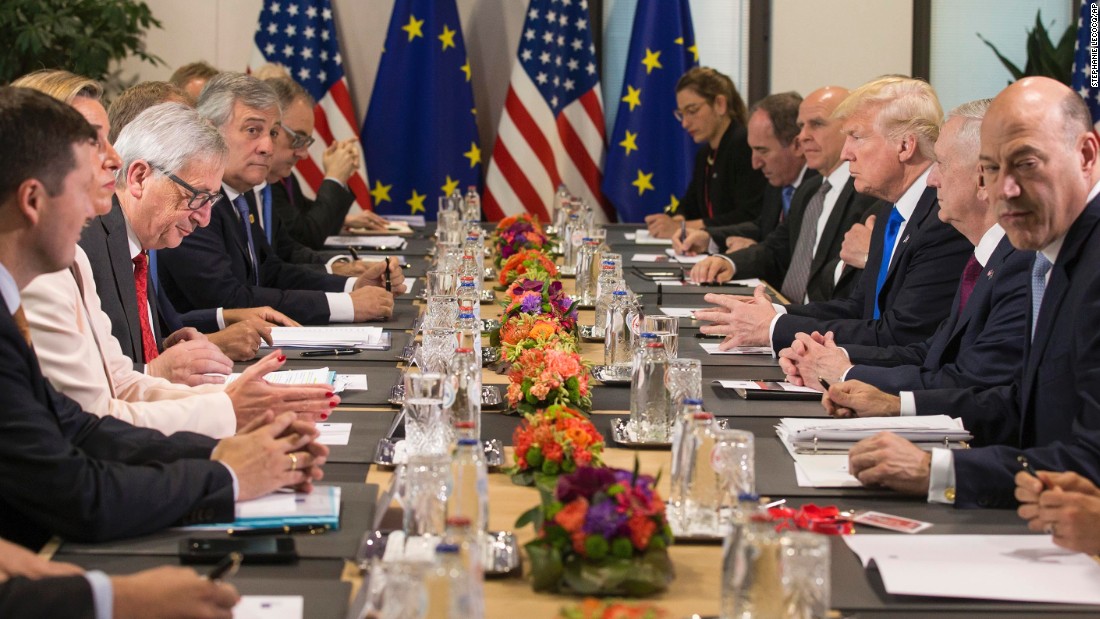
A Sad Degradation
The list of 12 GRU officers* put forward by U.S. intelligence as a means of pressuring Donald Trump leaves me, an old knight of the Cold War, at the very least perplexed.
Soviet intelligence agent Kim Philby once asserted that after the war, British intelligence agencies lost their class and grew pretty stupid. He ascribed this to the fact that they began to recruit officers not from aristocratic Oxford and Cambridge but from provincial centers of little significance.
However, on the whole, even during the hottest days of the Cold War, Western intelligence services conducted themselves quite reasonably. If they expelled our officers, it was for good cause, and the exposed agents were arrested. Sometimes expulsions were kept quiet so as not to damage relations among the countries. Relations between the Western and Soviet intelligence services were characterized by mutual tolerance (although there was an incident in which our intelligence officer splashed beer in the face of an American recruiter — this piquant story made it into all the memoirs).
Times changed, and in 1971, the British undertook an unprecedented action: at once, they expelled all 105 diplomats with their wives and children, and half of those expelled had nothing to do with intelligence. A declaration of persona non grata without evidence gradually became the norm. But the trend, noticed by Kim Philby, has now grown into a grandiose soap opera distinguished by its fantastical stupidity with the “poisoning” of Sergei Skripal and his daughter, Yulia, which quickly turned into an openly Russophobic campaign.
Today U.S. intelligence services have come out against their own president, in so doing violating all the principles of democracy. Intelligence agencies shouldn’t play a political role; they’re merely neutral executors, outside of politics. Though thanks to the media, movies and TV, which serve up information in the manner of James Bond tales, the activities of the intelligence services are seriously exaggerated and even elevated into a cult that many people worship.
The GRU officer list is curious and quite detailed, which points to a meticulous investigation of these Russian citizens by the U.S. intelligence community. Note that the individuals in question are in Russia. No matter how hard I tried, I couldn’t understand; wherein lies the meddling in the U.S. election? I know from experience that in Soviet intelligence, we, like other intelligence services, provide material support to candidates and their political movements with the help of our agents of influence. Sometimes we have made concessions in foreign trade, though not in the U.S. but in small countries. The hacking of the Democratic Party’s server is being presented as the infamous Watergate scandal — the sensational eavesdropping on Democrats which ended with President Richard Nixon’s resignation. But since when is Russia on the same level as an American party that competes with the Democrats? The National Security Agency, which has a huge budget, is listening in on everyone it can. That much is perfectly known if only from WikiLeaks. In Soviet times, we responded in kind, but on a much smaller scale since we never had such a budget. The Americans were really surprised when Vadim Bakatin, head of the KGB at the time, with Mikhail Gorbachev and Boris Yeltsin’s blessing, gave Secretary of State James Baker the organizational chart for the wiretapping of the U.S. embassy in Moscow. No one was expecting such noble-mindedness or thoughtlessness. But let’s make allowances for Russian gullibility: our leaders expected the Americans to do the same. Alas, the Cold War ended only in words.
The U.S. itself has succeeded in meddling in the internal affairs of other states — from intervening in Guatemala and Cuba, overthrowing Mohammad Mosaddegh in Iran, eliminating Salvador Allende in Chile, to waging war in Iraq, murdering Saddam Hussein and Muammar Gaddafi, and supporting the illegal Euromaidan against Viktor Yanukovych by handing out cookies made by the kind Madame Victoria Nuland from the State Department. And what should we call the constant solidarity of some of our opposition figures with Congress? In the opinion of the U.S. establishment, it’s not meddling but rather the fight for freedom and democracy. That’s what I call a fairy tale for the feeble-minded.
The Chatter Is Gaining Momentum
As for cyberattacks, the Russian side is constantly suffering entire cyber-assault campaigns, including from the U.S. The Russian president suggested that Trump create a group to investigate the problem and sign a suitable treaty. Caught between a rock and a hard place, Trump seemed to agree at first, but then, under pressure from his advisers and intelligence agencies (above all, the National Security Agency), he rejected the proposal. The chatter about Russia’s hacking of the Democrats’ server is only gaining momentum. We can only wait for these American convulsions to end and for common sense to prevail.
Mikhail Lyubimov is a writer and former head of Soviet intelligence.
*Editor's note: GRU is an abbreviation for the Main Intelligence Directorate, Russia's largest foreign intelligence agency.

